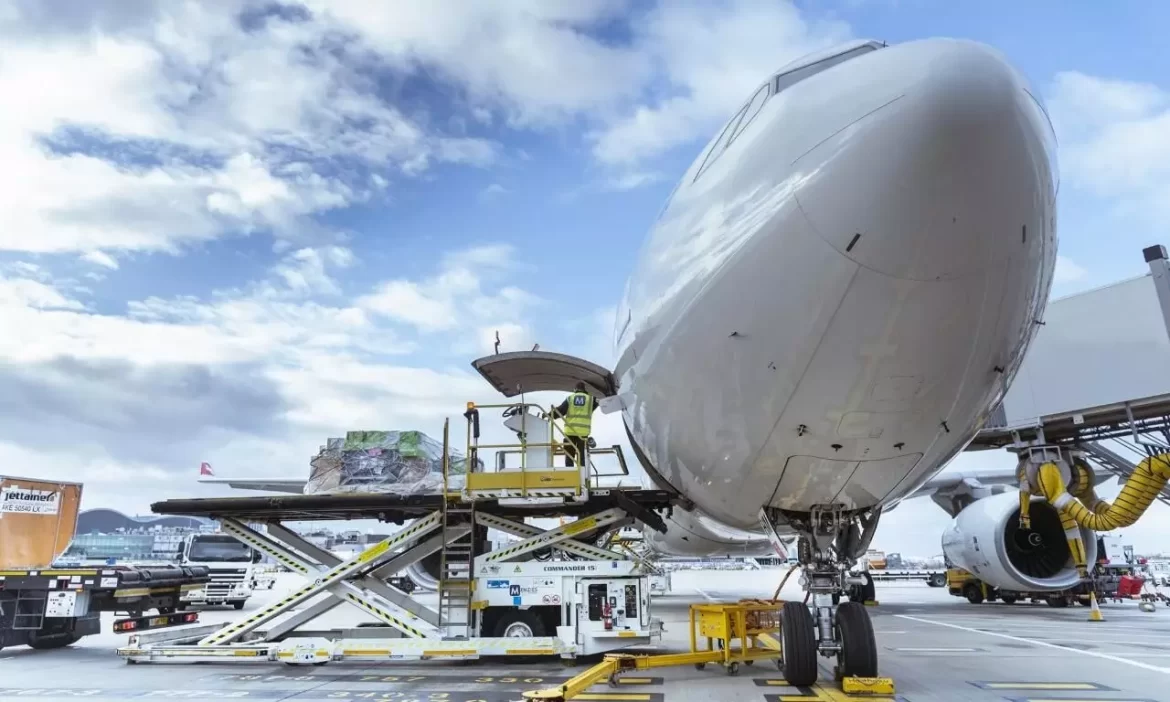614
By Tracy Moses
Stakeholders in the aviation and logistics industry have called on Nigeria’s air cargo sector to fast-track the adoption of modern technological solutions to eliminate inefficiencies, reduce operational costs, and minimize delays.
They warned that the sector’s growth potential is being undermined by the country’s failure to fully leverage innovations already in use across the globe.
Speaking at the CHINET AviaCargo, a just concluded Conference held at Eko Hotel, Lagos during the three-day Akwaaba African Travel Market, Chief Executive Officer of Mainstream Cargo Limited, Seyi Adewale, presented a paper titled “Harnessing Technological Advances to Improve Air Cargo in Nigeria.”
He emphasized the importance of collaboration among airlines, ground handling operators, the Nigeria Customs Service (NCS), the Federal Airports Authority of Nigeria (FAAN), the Council for the Regulation of Freight Forwarding in Nigeria (CRFFN), and the Nigerian Civil Aviation Authority (NCAA) to embrace real-time communication tools and deploy user-friendly digital platforms.
Adewale lamented that while the global aviation sector continues to advance with cutting-edge solutions, Nigeria is yet to maximize even existing systems. “It is surprising that we still struggle to fully utilize platforms that have long been in existence, even though some upgrades are ongoing. What we require are improved solutions that are both practical and efficient,” he said.
He highlighted five core objectives for technology deployment in the air cargo sector: faster service delivery, improved efficiency, cost reduction, greater transparency, and fair competition.
According to him, the industry is weighed down by a host of challenges, including the use of incompatible systems by airlines and ground handlers, poor communication among operators, Customs, and consignees, and higher costs to consignees due to demurrage and inefficiencies.
He also pointed to delays from Customs’ slow processes, weak technology adoption, and frequent system downtimes caused by unstable power supply and poor infrastructure. These, he said, translate into wasted manpower, inflated costs, and frustration for end-users.
Adewale commended the Nigeria Customs Service for introducing the “B’Odogwu” platform, which he described as a more efficient and user-friendly solution that empowers airlines to generate rotation numbers and resolve issues without third-party agents. However, he cautioned that its success would depend on regular training for officers and reliable power infrastructure.
He therefore recommended that Customs provide continuous training and periodic competence tests for its personnel, while both Customs and ground handling companies should invest in stable power supply systems to prevent operational breakdowns.
In his view, ground handling agents must procure advanced technology platforms capable of transmitting real-time information to airlines, while airlines should give them the latitude to transition to improved systems without penalties. He further advised that tally clerks be equipped with operational tablets to ensure accurate and timely data transfer, particularly for sensitive cargo.
Adewale concluded that implementing these reforms would not only boost efficiency and cut costs for airlines, ground handlers, and consignees but also strengthen Nigeria’s competitiveness in the global air cargo market.



